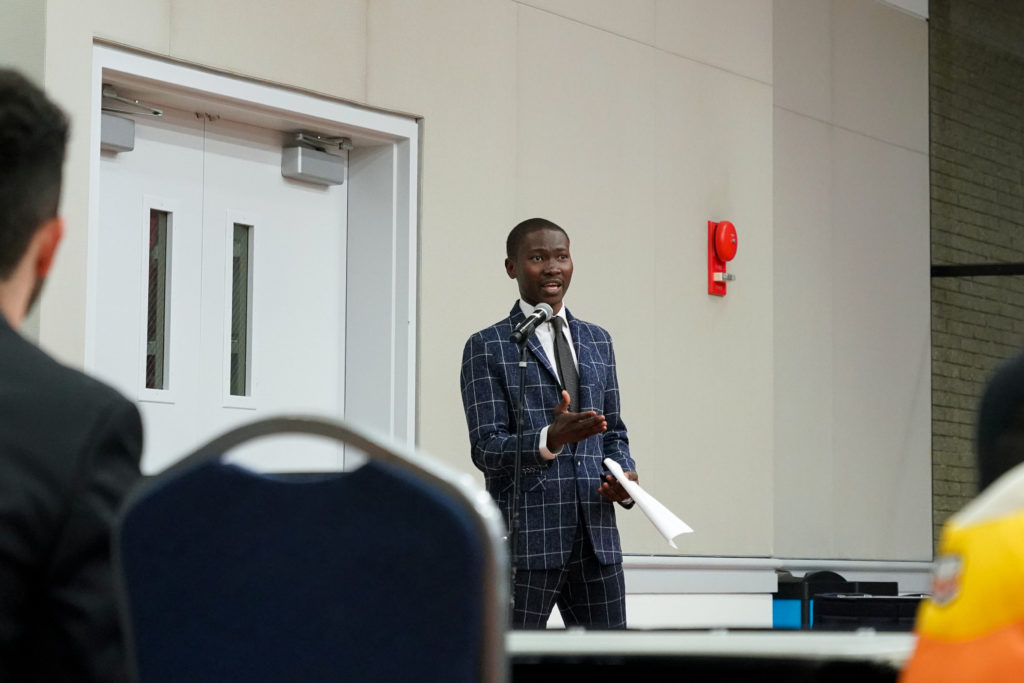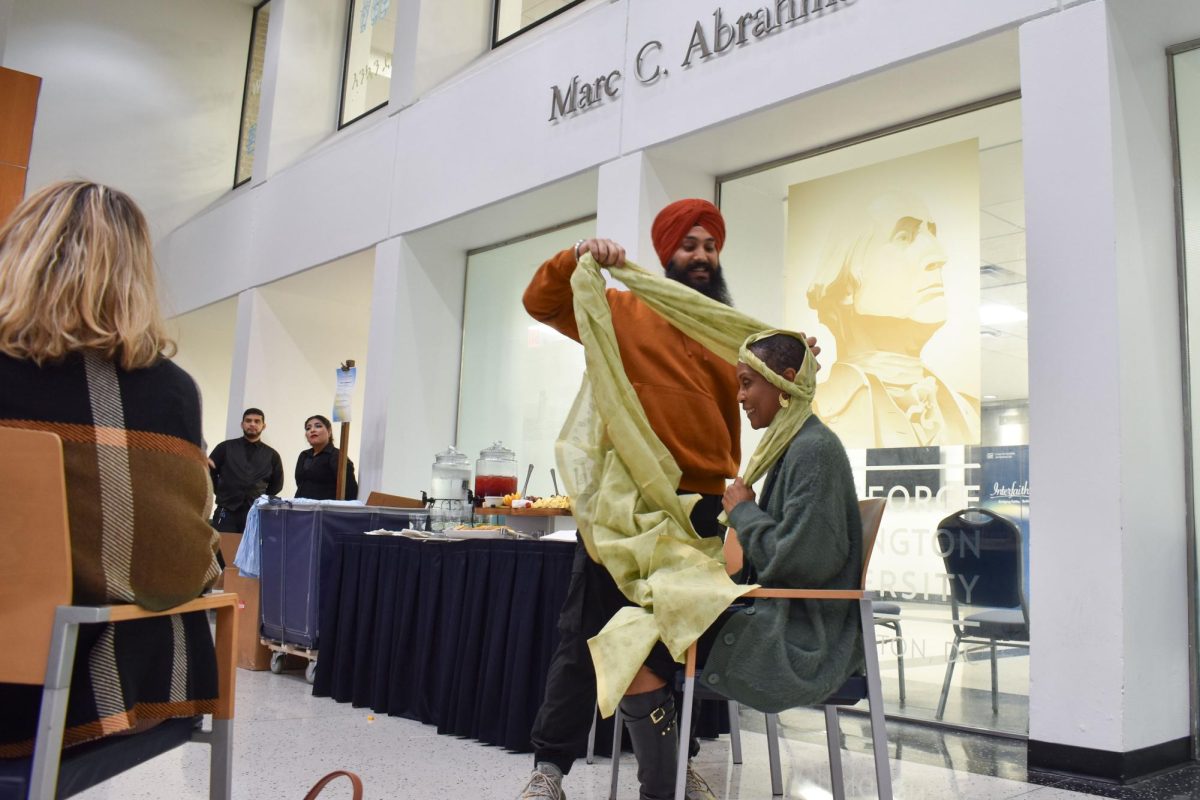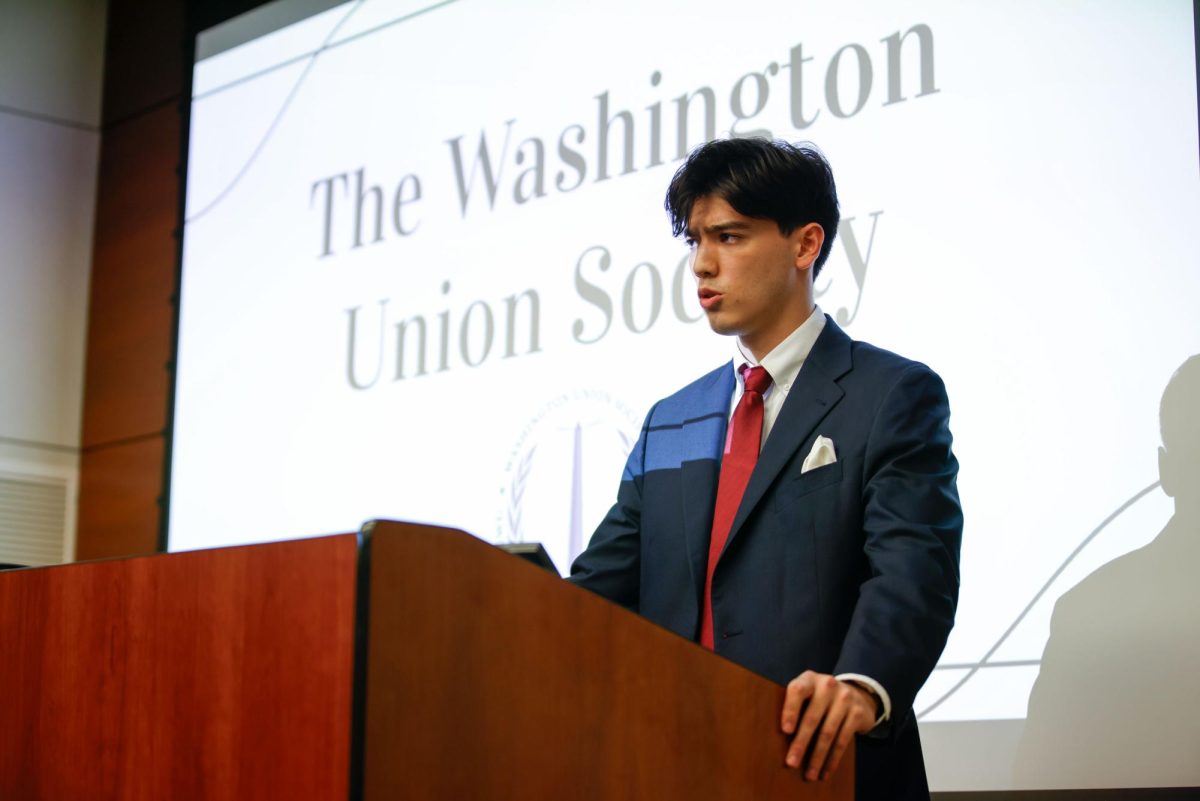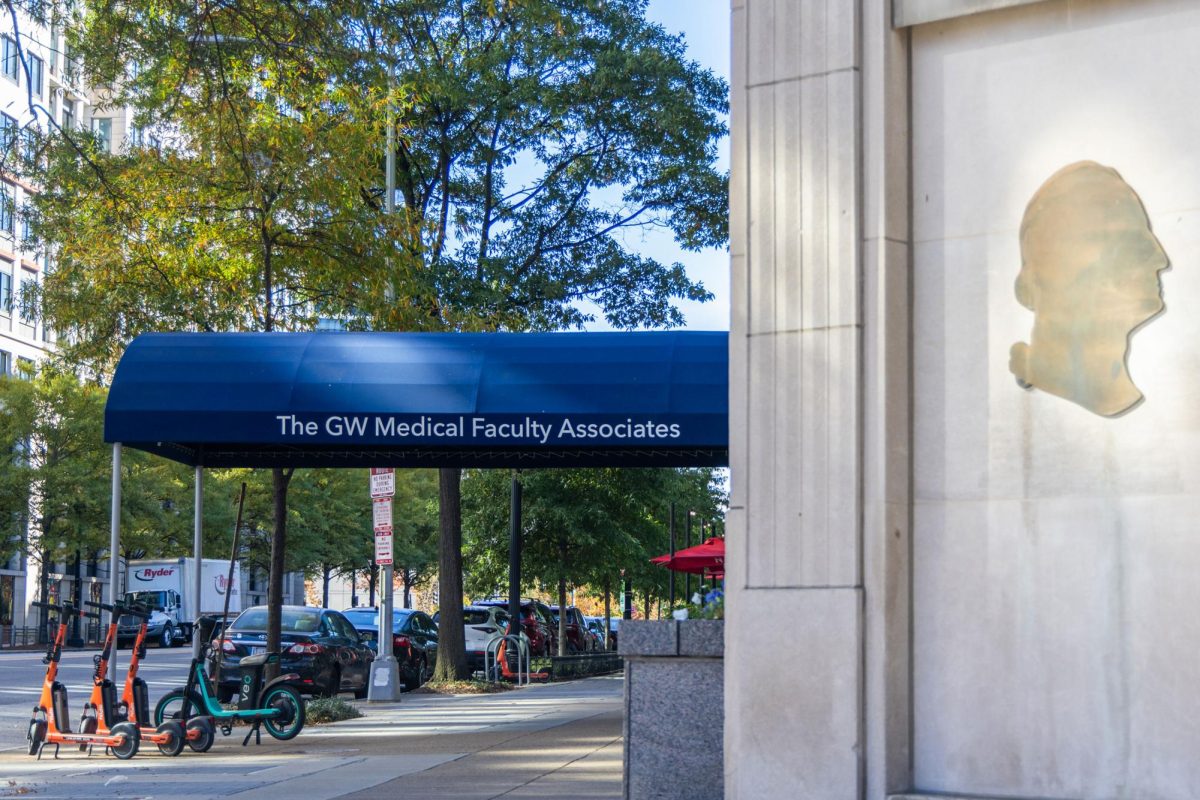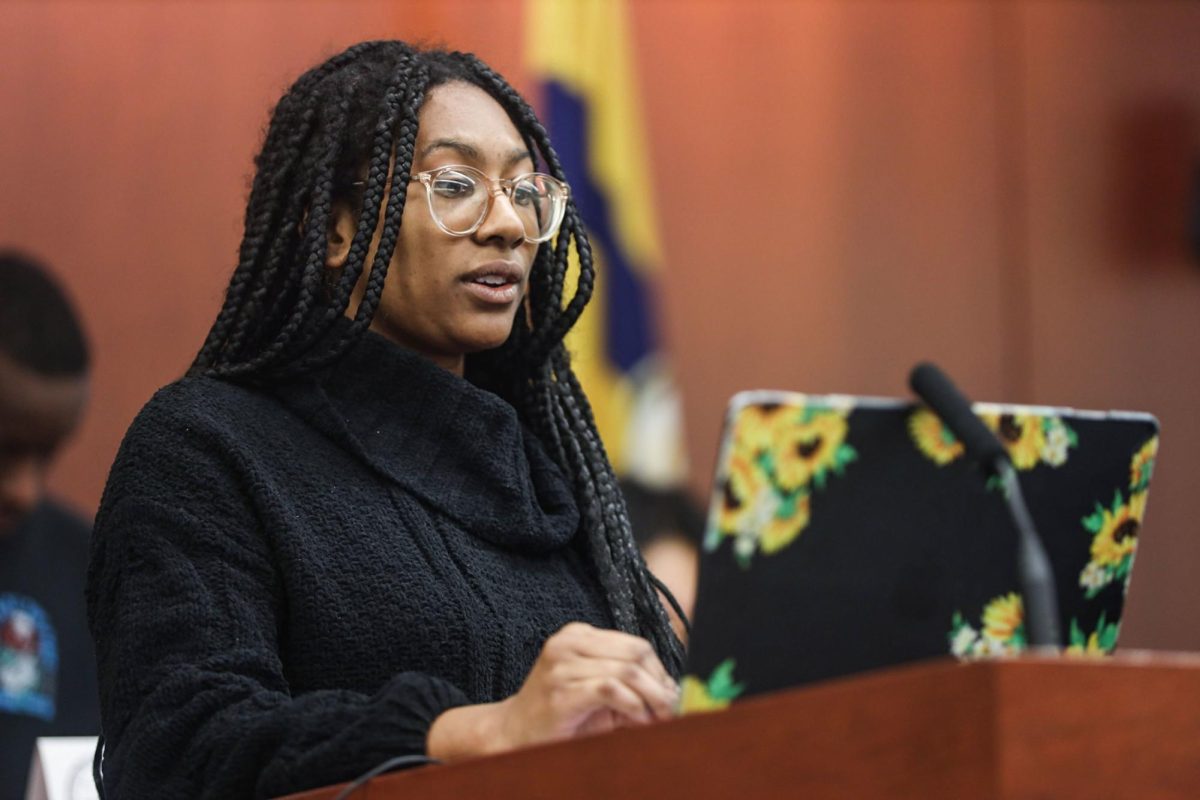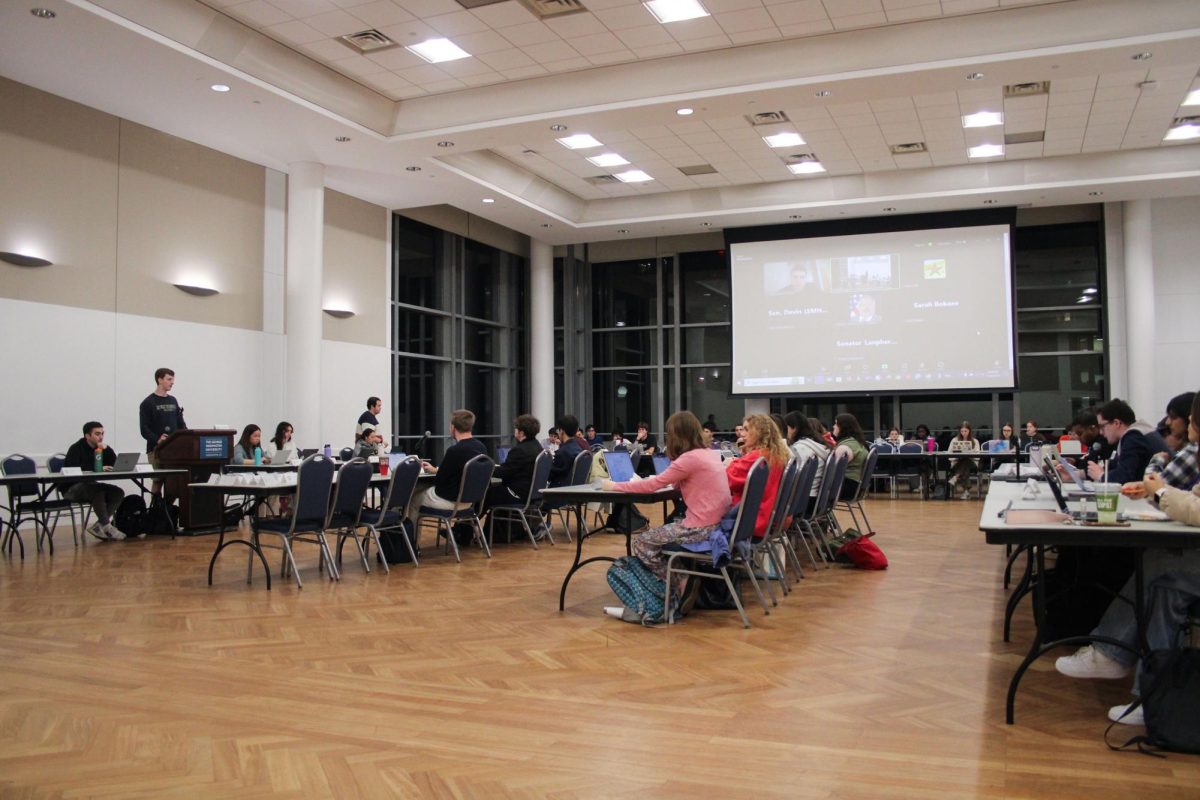The Student Association Senate on Monday unanimously approved SA President Christian Zidouemba’s executive order creating a task force to address the “scourge” of antisemitism on campus.
Zidouemba signed the executive order after then-legislator general Adam Galland drafted it in late January. The SA announced in a Feb. 6 email that sophomore Sabrina Soffer would chair the committee.
The Senate is required under the bylaws to approve executive orders.
More than 20 students gave public comments, either virtually or in person, in support of the task force. Soffer, a Hatchet opinions writer, said in a Feb. 23 Hatchet op-ed that she plans to recruit 10 students to the task force “regardless of ethnicity.” She said in Monday’s meeting that she and Zidouemba will review applications to the task force and conduct interviews with candidates.
“My voice and my identity in our discussions is equal to everyone else’s,” she said. “And with that being said, I would like to reiterate that all members of the public are eligible to join the task force.”
The SA broadcast the online application form in an email on Feb. 22. The application closes Tuesday at midnight.
Zidouemba said during the meeting he would not be running for re-election but later posted a poll on his Instagram asking whether he should run for president. Zidouemba walked back the comment in a statement to The Hatchet, saying he was still undecided.
The senate unanimously passed the Constitutional Amendments Act of 2023, which adds a referendum to the ballot for the April 5 and 6 elections asking students to approve amendments clarifying language in the SA constitution. The Governing Documents Review Committee submitted the resolution in compliance with a requirement in the SA Constitution to review the document every three years.
Zidouemba said he was concerned that Senate Chairperson Pro Tempore Demetrius Apostolis, CCAS-U, only emailed student organizations about the constitutional changes on the day the SA voted on the changes. He said while the committee is not required to reach out to student organizations for input, organizations should have a say because they rely on the SA for funding.
“We must remember that we serve the students, and the student organizations are critical shareholders in this change since they’re dependent on the SA for funding, among other issues,” he said.
Zidouemba said he was concerned with a change to Article 8 of the constitution, which, if students approve the referendum, would specify that SA legislation must not violate the University Guide on Student Rights and Responsibilities, the Student Code of Conduct or the SA Charter. Article 8 of the constitution currently only says SA legislation cannot violate the constitution.
“We exist under the umbrella of the University,” he said. “Yet, as a union of students, we must possess the autonomy to be critics of the University.”
Apostolis said the review focused on “clarity and transparency.” He apologized for sending an email to student organizations late, saying it should have gone out earlier, but added that the Governing Documents Review Committee has provided regular updates in SA meetings.
“I meet with almost everyone here, members of the public all the time,” he said. “It’s my job as a representative.”
The amendments would also change Article 20 of the constitution to specify that the Board of Trustees would need to approve a student vote to dissolve and liquidate the SA.
Zidouemba said he intends to veto the bill because of concerns over student sovereignty, which would cancel the referendum.
The senate unanimously passed the Club Sports Amendment Act of 2023, specifying that 22.5 percent of the budget should be allocated toward club sports, when, previously, the percentage was not specified in the finance bylaws. SA Sen. Linsi Goodin, CCAS-G, said the amendments allow club sports teams to make requests on an annual basis instead of each semester.
Goodin announced that the general allocations requests opened March 1 and will close March 20 at midnight. She said requests submitted after the deadline will not be considered.
She said finance committee members and members of the Legislative Budget Office are required to attend at least eight hours of general allocations deliberation to ensure diverse opinions and accountability. Legislative Budget Officer Nathan Nguyen said last semester’s allocations occurred over 72 hours of deliberations.
The senate approved Dan Saleem to fill the CCAS-U vacancy and Shubham Jadhav to fill the SEAS-G vacancy.
The next senate meeting will be held March 27 at 8:30 p.m. in the University Student Center’s Continental Ballroom.
Faith Wardwell contributed reporting.


